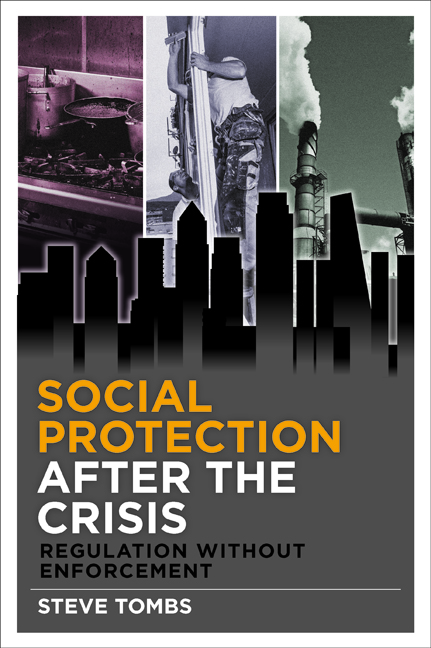Book contents
- Frontmatter
- Contents
- List of tables and figures
- About the author
- Acknowledgements
- one Introduction: some starting points
- two The new material and moral saliences of private capital
- three Framing the crisis: moral critique and the renewal of ‘business as usual’
- four Regulation, orthodoxy and hegemony: crisis, what crisis?
- five Re-regulation in action: ‘Better Regulation’
- six Regulatory inaction? Regulation without enforcement
- seven After regulation?
- Notes
- References
- Index
four - Regulation, orthodoxy and hegemony: crisis, what crisis?
Published online by Cambridge University Press: 01 September 2022
- Frontmatter
- Contents
- List of tables and figures
- About the author
- Acknowledgements
- one Introduction: some starting points
- two The new material and moral saliences of private capital
- three Framing the crisis: moral critique and the renewal of ‘business as usual’
- four Regulation, orthodoxy and hegemony: crisis, what crisis?
- five Re-regulation in action: ‘Better Regulation’
- six Regulatory inaction? Regulation without enforcement
- seven After regulation?
- Notes
- References
- Index
Summary
Decent chaps don't check up on decent chaps to see that they’re behaving like decent chaps. (Sir Desmond Glazebrook)
Introduction
In one sense, it would be hard to over-estimate the extent to which the financial crises that rolled out across many parts of the globe from the end of 2007 onwards changed political, social and economic landscapes in many of the nations most affected. At the same time, several observations seem incontrovertible, and are assumptions upon which this chapter proceeds: first, that much of what was enmeshed in the aetiology of ‘the crisis’ involved not just harm but various forms of crime engaged in by major financial institutions across the world; second, that one of the causes of the crisis was not just risk-raking behaviour on the part of these institutions, but the nature and level of regulation at both national state and international levels which either allowed or encouraged such activities – in other words, the crisis represented not just forms of corporate crime and harm, but of state complicity in these. Third, that the state–corporate relationships which generated these harms and crimes are, to put it mildly, in urgent need of reform – and that this reform is most likely, under current politico-economic arrangements at least, at the point at which state and corporate activities most manifestly meet, that is, in the practice of regulation.
A question thereby raised is this: what can criminology or socio-legal studies tell us about the causes of the crises or ways in which further such crises might be prevented, mitigated, responded to? This is a pertinent question to ask of criminology, since one of the phenomena at issue in the crisis is potential or actual crime, and certainly widespread harm, a concept which has recently found its way into the discipline (QAA, 2014). And it is also a question of direct relevance for socio-legal studies because, in general, this sub-discipline is the place where most academic work on regulation gets done. These two questions provide the framing context within which this chapter proceeds. The focus is specifically upon British academia, albeit it is impossible to demarcate this clearly and neatly.
- Type
- Chapter
- Information
- Social Protection after the CrisisRegulation without Enforcement, pp. 75 - 106Publisher: Bristol University PressPrint publication year: 2015

